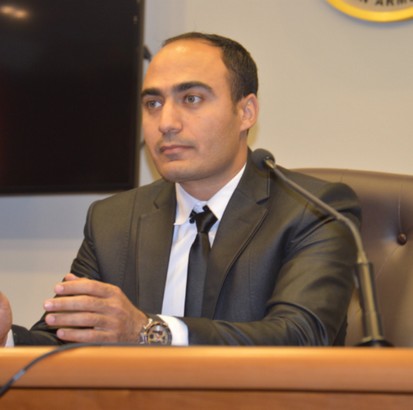Preparing to be a Professional Arabic Translator
 Throughout history, translation has played a significant role in communicating culture and knowledge between people. Students, scholars, and religious figures have traveled between countries and borders to transfer the sciences of astronomy, arithmetic, agriculture, religious beliefs, and cultures into other languages.
Throughout history, translation has played a significant role in communicating culture and knowledge between people. Students, scholars, and religious figures have traveled between countries and borders to transfer the sciences of astronomy, arithmetic, agriculture, religious beliefs, and cultures into other languages.
This is something that has occurred between all civilizations and people, and it still happens today, though advances in translation technology have greatly facilitated the process.
As translation has become mainstream with the development of a robust global economy, there is a greater need for professional translators.
Professional Translators
Translation is not simply the conversion of one language to another. It is a mixture of science, art, and skill.
Let us emphasize the word professional. Simply speaking a language is not enough to provide professional translations.
Basic Translator Skills
The translator must:
- Be fluent in both the target and source languages, including grammar. As a rule, a professional translator should only translate into their native language. Translations should read as if they were originally written in the target language, a native speaker is more apt to produce this quality of translation. Additionally, living in-country or frequently visiting, allows the translator to stay current with changes in the language.
- Be familiar with the culture of the people of the two languages. This will enable the translator to correctly translate the content from one language to another. If the source text is full of idioms, the translator needs to understand how to convey the meaning to the target audience.
- Be a subject matter expert (SME) of the text to be translated. It is advisable for a professional translator to choose a specialty or related specialties. It is impossible to translate all topics, and listing too many specialties on your resume can actually be a flag to the agency reviewing your credentials. If you love marketing, specialize in marketing, and if gaming is your passion, translate for the gaming industry. Many times, a person will study a topic in college and then decide to become a translator and specialize in that field.
As a translator, you need to stay current with industry terminology which is easier when you specialize.
- Have a literary sense to be able to translate literary texts properly and adequately.
- Be able to adapt or transcreate expressions that may seem unimportant, incomprehensible to the culture, or unacceptable in the religion. Translations should read as if they were originally written in the target language. As a translator, you can offer your cultural expertise to the client if the content needs to be adapted to the Arab culture.
- Be very familiar with the holy books and texts, as you may be required to brief or rephrase, using quotes from the Qur’an, the Bible, or the Torah.
- Ask questions and research. If you do not understand something in the source file, do the research and/or ask the question, get the clarity you need in order to accurately translate.
- Review your work. Before you hit send and deliver your project, reread your translation, is it complete, did you adhere to the glossary and/or the translation memory, did you check spelling, grammar, and punctuation?
- Have a well-developed resume. While you may not be able to say who you have translated for, you can specify the type of translations, subject matters, and volume of translations. Be as specific as possible and avoid irrelevant or even not enough information. Your resume is your billboard, market yourself well.
Practical Training
In addition to formal education in translation and continuing learning classes, the modern translator also needs to learn the tools of the localization industry. With the rise of computer-aided translation (CAT) tools, translators need to develop their skills and capabilities and be familiar with or master some of the mainstream tools such as MateCAT, OmegaT, SmartCAT, MemoQ, Poedit, Wordfast, and Trados. It is also recommended to become familiar with platforms like Smartling, GlobalLink, and GPI Translation Portal. You will not be able to have all the different applications as this is cost prohibitive, so research or ask your peers what systems they recommend. As you become more established, you can make investments and purchase a program. If the company is using a translation management system (TMS) they may offer direct training.
Unfortunately, the current learning curriculums in many translation schools are focused on the basic preparation of a good translator. Still, it is not making them ready for the translation market.
Currently, there is no dedicated department for localization engineering and translation technologies in Middle East Universities.
So, the current top-performing Arabic translators in the translation market gained this additional experience by themselves after their education or perhaps sought their education at other universities.
Conclusion
Just because you speak a language does not make you qualified to be a translator. You need to have a passion for language and specialize in an industry so that you are a subject matter expert. A professional translator generally translates full-time, though starting out, you may need another job while building your portfolio. Perhaps you are lucky, and that job is in the industry you want to specialize in. Many agencies prefer translators with at least five years of translation experience.
Translation takes practice and dedication. If you are just starting out or thinking about a career in translation, look for translator groups to join and learn more about the localization industry. Look for volunteer translation organizations such as Translators without Borders, volunteering is a great way to gain experience and build your resume.
If the information we’ve provided is applied to several translation courses, imagine how much information they will transfer to the target language in a particular field. Also, imagine how much time scholars and scientists could save by only studying the translated text rather than translating it themselves. This will increase the number of scholars in the nation that is studying that field and lead to qualitative advances in that field, which means prosperity and progress for the people, and all this is thanks to translation.
In our next blog, we will cover some essential tips for translators who decide to work as individuals based on experience gathered from current senior Arabic freelance translators with hands-on experience in the field.
References
